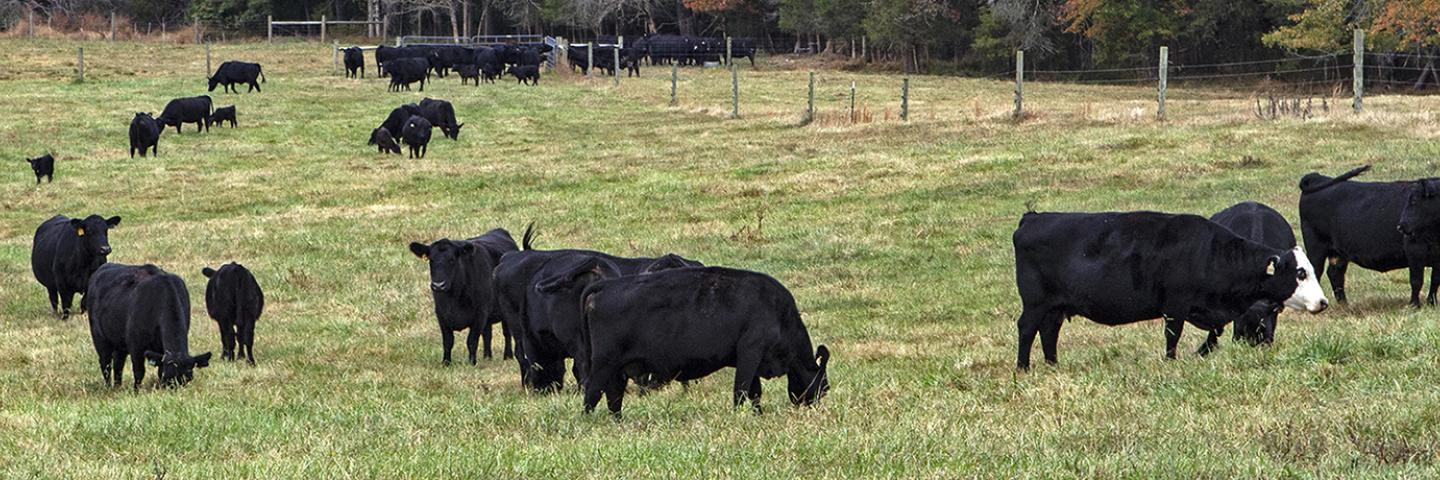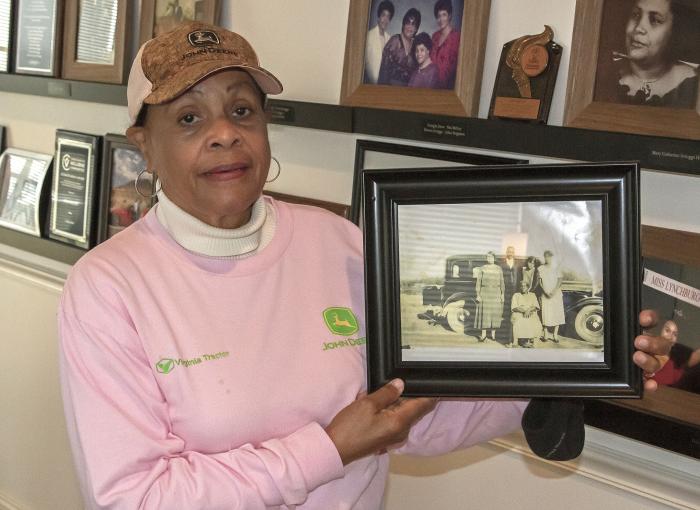Preserving a Family Legacy from Battlefield to Cattle Fields

Ora Scruggs McCoy maintains a family museum in the main house on her Appomattox County farm. She knows many of the stories of this historical area and thinks they should all be heard. Read on to learn more about this colorful conservationist and 2021 Minority Farmer of the Year.

APPOMATTOX. Va. – About 16,000 people live in Virginia’s historic Appomattox County and Ora Scruggs McCoy isn’t exaggerating when she says she’s met just about all of them.
Some of them got to know her in 1975 when she was named the county’s first female postmaster (the first African American to hold the position). Others may have encountered her during an eight-year hitch on the county school board or at three local churches where she served as a pianist.
Today, McCoy spends much of her “free time” promoting the Carver-Price Legacy Museum, which emphasizes local African American heritage in a place where history often seems to start and stop on April 9, 1865.*
NRCS is pleased to help share the story of this long-time community activist by recognizing her as its 2021 Farmer of the Year.
“This award recognizes and honors minority producers who are outstanding stewards of the land and promote conservation in their communities,” said Dr. Edwin Martinez Martinez, NRCS' state conservationist for Virginia. “Ms. McCoy checks both boxes and we are thrilled to have a small part in preserving the land she so dearly loves.”
The story of Scruggs Farm begins at the end of the Civil War when newly freed slaves Daniel and Phoebe Scruggs actually received the often mythical “40 acres and a mule” Union military commanders promised to all emancipated slaves. The family holdings increased to 335 acres over three generations, but much of the property was sold after the death of McCoy's father. McCoy, her late husband and her son, Edward McCoy, Jr., all invested considerable time, effort, and resources to buy back all but about 13 acres divided among numerous heirs.
“Which is one reason why you don’t see too many Black families still on their original properties,” said McCoy, who was born in the farmhouse and lived on site until 1970. “In a lot of other families, once some of the heirs moved away from Appomattox, all they usually wanted to do was sell when it was their turn to inherit. We had to be very patient, but we eventually bought up all the pieces that were willed to my siblings to allow us to keep the land as a farm and to continue the legacy.”
At age 79, McCoy is very involved in the family business but leaves much of the day-to-day operations to longtime farm manager Donnie Franklin. The operation transitioned from crops to cattle in the 1980s and the family now manages about 200 head on three different farm sites. Their efforts to expand the cattle operation also prompted them to focus additional attention on stewardship.
“The drier the year, the less water that’s in our creeks and springs,” explained Franklin. “Our water table has dropped a lot and the cows were staying in the water more because the water level was getting so low.”
The family worked with the Robert E. Lee Soil & Water Conservation District to implement rotational grazing with fencing and an alternative watering system to keep the cattle out of a stream that runs through the property.
With assistance from the NRCS field office in Rustburg, they also developed a conservation plan for the farm’s 200 wooded acres that includes tree and shrub plantings as food sources for wildlife and practices to improve soil quality. These activities will be undertaken with financial assistance from the NRCS Conservation Stewardship Program (CSP), which offers payments for the conservation performance of existing practices.
“That falls in line with what we’re trying to do to conserve the farm and be good stewards,” said Edward McCoy, Jr., who lives near Richmond but visits the farm frequently. “We want to make sure we use good environmental practices to maintain the farm. It’s part of our long-term strategy to grow the farm and make it sustainable.”
“It’s been a labor of love getting it to the size and scope we are at now,” he adds. “We want to earn enough to preserve the land as a fun place where younger generations can come and hang out with the animals, enjoy the woods and ride the four-wheel-drive vehicles if they want to. We see the farm as a family playground as much as a working farm.”
For Ora McCoy, the land has even larger significance as a gathering place for the community. She hosts a picnic every year for three to four hundred of her neighbors, inviting them to come out and enjoy the property.
Her passion for family history is immediately obvious when visitors walk into the living room and view an entire wall of family photos and newspaper clippings detailing major developments in the Scruggs/McCoy saga. Many of the men and women featured in the wall display were farmers and are buried in a small graveyard behind the house, further connecting past to present.
“That core 40 acres still belongs to us and it’s my aim to see that it always will,” she said, “I make my son and my grandson promise me all the time that they’ll never sell it. I’m sure they get tired of me doing that, but it’s that important to me.”
“Nana has nothing to worry about,” said grandson Reid McCoy. “It’s always been a very special place because of the history and legacy and connection to family. Every time I come here, it’s just home.”
*The Appomattox National Historical Park is only a few miles away from her family farm and lures thousands of visitors every year to explore the site of the last Civil War battle fought in Virginia. The final hostile shots were fired on the morning Confederate Gen. Robert E. Lee surrendered at the McLean house on April 9, 1865.

